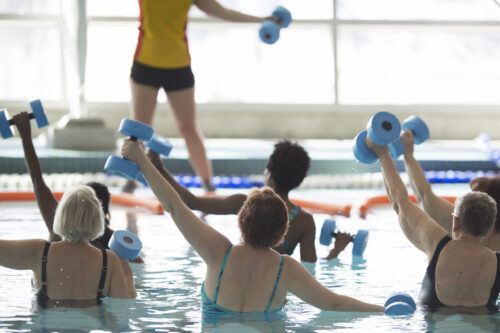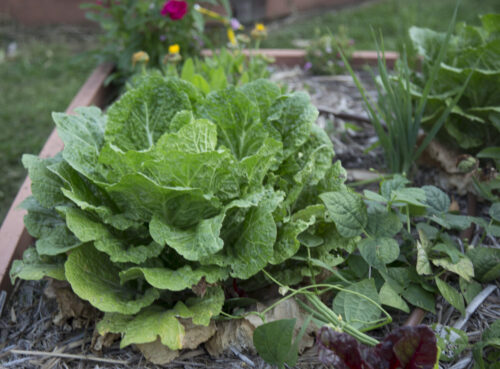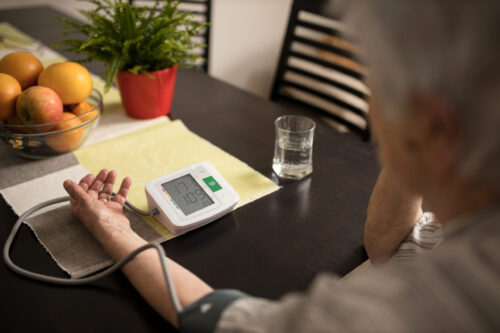Occasionally losing your keys or stopping to think about why you entered a room can be a normal part of aging—brain function may decline as we get older. But you can take steps now to keep your brain working at its best for healthy aging.
These eight daily habits help support memory, thought processes and other important brain functions. Learn more about how to be proactive in keeping your brain healthy and your mind sharp.

1. Get enough sleep.
Adults need 7 to 9 hours of quality sleep per night to allow the brain and other vital organs, cells, tissues and muscles to restore and recharge. A lack of quality sleep may hasten cognitive decline. It also raises the risk of diabetes, depression and heart disease.
To nod off faster, turn off the TV, phone and other screens a couple of hours before bedtime. Go to bed and get up at the same time every day; exercise also helps with sleep. Working out can help regulate your circadian rhythm, the 24-hour internal “clock” in the the body.
Try using a bedside noise machine with white noise, nature sounds or soothing music to help you drift off. Download a free sleep or mindfulness app with music, guided meditations or a narrator telling a story so dull that boredom puts you to sleep. Some research indicates that drinking two glasses of tart cherry juice each day may also help you sleep longer.

2. Stay socially connected.
Staying connected with a social network and activities keeps your brain busy. Socializing also reduces social isolation, a risk factor for cognitive decline. To broaden your social network, join a walking group, book club, church or a group or class based on a hobby you enjoy.
If you’re unable to get out due to mobility or health issues, join online forums or social media groups focused on your hobbies and interests to make new friends. For example, you can find online forums on humor, food and drink, health and fitness, crafts, sports, travel and many more topics at SeniorForums.com.

3. Get moving.
When you work out, walk or even do chores around the house, the physical activity can improve your memory and help you think more clearly.
Exercise also enhances problem-solving skills and can reduce your risk of cognitive decline, according to the Centers for Disease Control and Prevention (CDC).
It’s easy to make exercise a part of your daily routine: Join a walking group. Sign up at a local fitness center for yoga, weight training, Zumba or Pilates classes. Work out in the pool with low-impact water aquatics classes.
If you’re a regular at a gym or fitness classes, you can make new friends who also stay on top of their health. If you’re exercising at home or with limited mobility, you can keep fit with chair yoga or online exercise classes from sites like SilverSneakers.com.

4. Start volunteering.
Volunteering is also one of the best ways to form new social connections and add purpose to your life. A 2023 study found that volunteering later in life may also improve recollection of past events and working memory. Study participants who volunteered scored high in executive function—the ability to plan, make decisions and control emotions.
In another recent study of older adults, participants who felt a greater sense of purpose while volunteering had faster thought processing speeds. To find volunteer opportunities, search online for a local nonprofit with a cause you’re passionate about. You can also find local volunteer opportunities by searching sites like volunteermatch.com.
If the everyday hustle of life doesn’t allow time to get out and volunteer, sign up to perform online volunteer tasks with a local or national organization. To get started, check out VolunteerMatch for both local and virtual volunteer opportunities.

5. Take up a new hobby.
A new hobby can provide both fun and a brain boost. A 2023 study found that people aged 65 and older who engaged in a hobby were more likely to enjoy better mental health and a greater sense of well-being.
If you’d like to start bird watching, playing pickleball, gardening or any other new hobby, search online or inquire at local senior and community centers—many host groups and classes. To explore your creative side, take an art class in painting, drawing or pottery.

6. Be a lifelong learner.
Who says education has to stop after high school or college? Keep your mind sharp by learning new skills and expanding your knowledge with free online college courses offered by the Smithsonian Institution, Harvard University, University of California-Berkley and other top universities at edX.
At edX, you’ll find a wide variety of free, self-paced online courses on business, art, history, literature and more. EdX also offers online instructor-led courses for a fee. Many community colleges and universities offer free classes to older adults that you can audit without completing course work or receiving credits. Even though you won’t earn credit for the classes, you’ll expand your knowledge.
If you prefer more bite-size learning opportunities, take a tour at local museums or add a museum tour at a vacation destination. You’ll also find educational lectures, classes and workshops at public libraries and local community centers. Try answering free online trivia questions such as these quizzes at Britannica or Extra Mile brain teasers to help keep your mind sharp.

7. Eat brain-healthy foods.
The foods you eat every day can help reduce your risk for cognitive decline and Alzheimer’s, according to the National Institute on Aging. Some research indicates a correlation between certain foods and brain health.
Foods that contain potentially brain-healthy vitamins and minerals include:
– Leafy green vegetables such as broccoli, kale and spinach, which are high in vitamin K, beta —carotene, folate and lutein. Bonus: Many of these are easy to grow in an outdoor garden!
– Beans and legumes, which contain B vitamins, folate and fiber
– Fatty fishes and other seafood with omega-3 fatty acids, which are associated with lowering beta-amyloid protein clumps that can lead to Alzheimer’s disease
– Olive oils and other unsaturated fats in place of saturated fats such as butter, coconut oil, lard and palm oil; some studies associate saturated fats with cognitive impairment and brain inflammation
– Walnuts, which are high in omega-3 fatty acids
– Berries, which contain flavonoids, which research links with improving memory

8. Check your blood pressure.
High blood pressure is associated with a greater risk of developing Alzheimer’s disease and other types of dementia. You can help manage your blood pressure levels with exercise, a balanced diet and other lifestyle factors, like quitting smoking. If you have high blood pressure or high blood pressure runs in your family, your primary care physician or another health care provider can prescribe a medication to lower your levels.
If you have high blood pressure, make it a regular habit to check your blood pressure with a home blood pressure monitor. The CDC recommends checking your blood pressure at the same time each day. Wait one or two minutes after the first reading and then take another. Consult your health care provider for personalized guidance on how often to check your blood pressure each day.
Even if you don’t have high blood pressure, checking your levels occasionally can alert you to blood pressure concerns.
Incorporate simple habits to stay sharp.
By adding these habits to your daily routine, you can help boost your brain health for years to come.







Yes very helpful 👏 Thank you so much 💓
Amazing information. I was a happy to see that I consistently do all of these.
yes, the article was very informative. At my age it has definitely given me different ideas. Keep up the good work.
How often do you recommend taking the safe drivers course? I took it a few years ago.
Love your e-mails Thank Tou
Very helpful lots of good information
Yes, this article was real helpful,I’m definitely starting to put these suggestions in practice.
I am ninety years old. I workout @ my local YMCA where I am with all age groups, unlimited conversations and activities. Lots of fun!!!
Excellent read – Keep them coming! And Merry Christmas
Very informative. Thanks!
This information was very helpful and encouraging for me mainly because I have made up my mind to take better care of my helalth and stop assuming being retired means be lazy. I’m planning to lose weight and get out more which will help with weight loss. Thank you, I look forward to reading more.
Many thanks for the suggestions and articles you have given here. I always eat healthy,
stay busy and have a good social life, but always open to more ideas!!
Interesting
Goods ideas. Helpful. Good to pass on to friends and relatives.
I’m beginning to have memory problems that are scaring me. I do go to Church, volunteer at Church Prayer Group also a member of a Senior Life Solutions group. I walk my dog 2_3 times a week. But need to do better about diet. Thank you I look forward to reading the Extra Mile.
Thank you for providing such useful information.
Nice article.
This was a great article for seniors to read and keep up on their daily life.
I am already doing 7 of the 8 great suggestions. Unfortunately the one that I am not doing is #1, but I will try listening to music at a very low volume.
I found this very informative. I do jigsaw puzzles (1,000 piece) sudoku and word search puzzles. Recently started learning Spanish on Duolingo. And bought some trekking poles to aid in hiking.
The information You provide is always very helpful and I enjoy reading all your information.
I like this kind of information, thanks
I find “Fast and Easy Crosswords” stimulate my memory; sometimes define words differently from my understanding and increase vocabulary. I think they are an excellent way to understand the variety of our language, particularly for those who use English as a 2nd language.
…..as an ancient [in my 88th year] athletic male I appreciate the the significant content and variety of the articles . The listed ‘ 8 Habits to Keep your Brain Sharp ‘ are excellent……Thanks, Brain….oops, I mean Brian.
Helpful and healthful information to keep the mind and body in optimal shape and sharpness. Worthy reminder tips for everyday use!
Yes, but I’m a bit confused about this statement “Fatty fishes and other seafood with omega-3 fatty acids, which are associated with lowering beta-amyloid protein clumps that can lead to Alzheimer’s disease”. Are you saying that these types of seafood can lead to Alzheimers/dementia?
Hi there! Just the opposite. Fatty fishes and other seafood with omega-3 fatty acids can be brain-healthy and help ward against disease. Thanks for reading Extra Mile!
Excellent article. I plan to do some of them.
Great information.
I’m going to give this a try@
Thanks for ALL the suggestions I always enjoy your articles
Helpful thanks
Yes! I am 87 & walk 5 miles 3 days a week & and go to “Y” 3X a week. But still need all the help I can get!
I enjoyed reading this articles & will need to follow more of them
It was very helpful.
Very informative article! I’m planning to incorporate these in my life
The article was very informative and helpful. My wife and I will definitely make some life changes to improve our brain function as we grow older.
Thanks for the advice and very useful information.
Great info. Some of the best I’ve seen. The broad range of ideas is something that almost everyone can find a niche in. Even if it is just a few of these it should be most helpful to us geriatric folks.
Enjoyed!!
Thanks 6 out of 8 isn’t to baf
Very helpful reminding me check my blood pressure often I’m already exercising bowling and playing pickle ball now I can do a little more walking.
Thank you for the Senior Forums link under #2, “Stay Socially Connected.” I hadn’t heard of this forum before ~ so many discussions and lots of interesting topics!
Great suggestions
Thanks for sharing this information to seniors.
Today my Sharp Mind group reviewed most of the suggestions given here in the above article. They are all life savers to preserve cognitive function and enjoyment of life. BRAVO!!